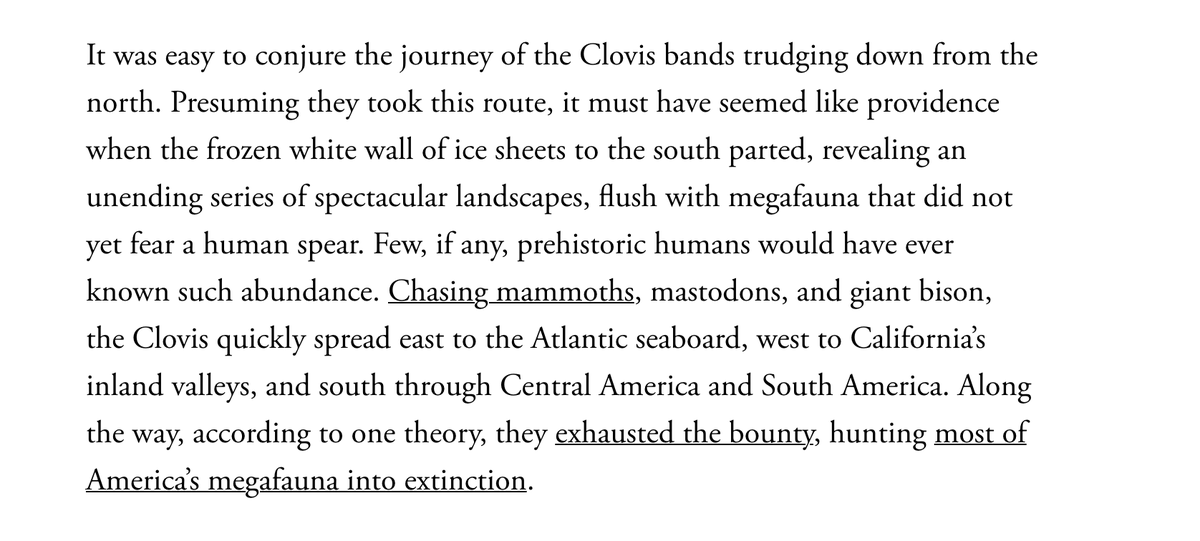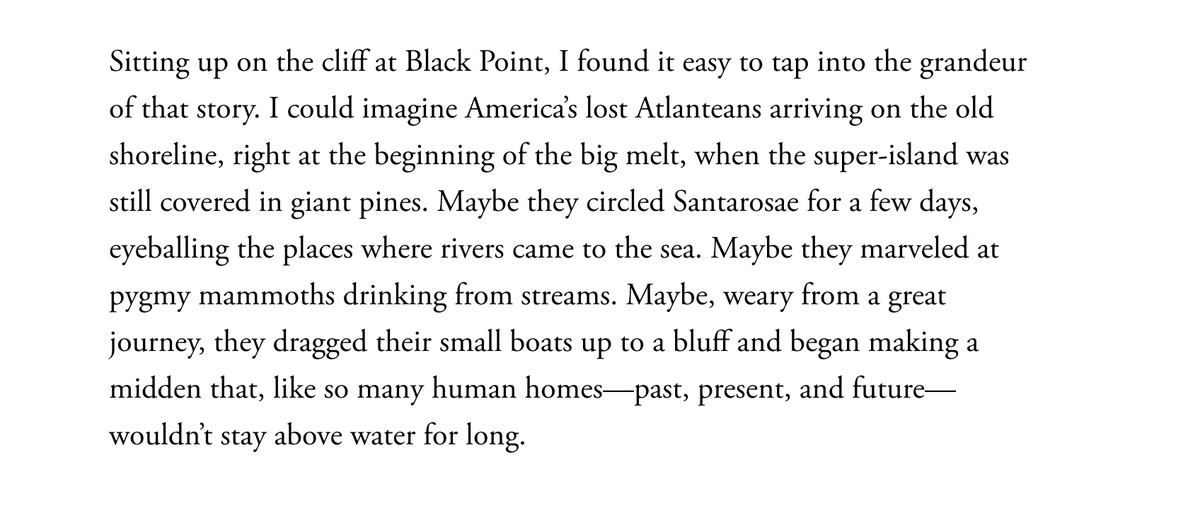1/ Who were the first Americans? Did they come by land or sea? @andersen went on an expedition to California’s Channel Islands to find out what archaeology can tell us about humanity’s primeval ancestors. theatlantic.com/magazine/archi…
2/ The genomes of living Native Americans suggest that their ancestors first traveled from the polar cold of northeastern Eurasia to North America more than 15,000 years ago. This feat of exploration surely ranks among humanity’s greatest, Andersen writes—but who achieved it? 

3/ Big-game-killing spear tips—the oldest known is more than 13,000 years old—offer some clues. The “Clovis-first” theory suggests that thousands of years ago, ice sheets rolled back, opening a new corridor east of the Rockies—and humans raced down to the North American interior. 

4/ But there’s another theory: The first Americans may not have been big-game hunters, but skilled mariners. They might have traveled along the west coast of North America on small watercraft—eating otters, shellfish, and strips of campfire-dried seaweed along the way. 

5/ There’s some evidence for the coastal theory: Archaeologists found a cave site in Oregon containing 14,300-year-old human feces; another site, in Idaho, had hearthstones more than 15,000 years old. At that time, the Pacific Northwest was likely inaccessible by an inland route. 

6/ In the water near Santa Cruz Island, archaeologists are now searching for evidence of human habitation. If definitive evidence of a pre-Clovis settlement is found beneath the waves, it might tell us, once and for all, that the first Americans were people of the sea. 

8/8 Subscribe to the Atlantic Daily for more stories from our October issue:
theatlantic.com/newsletters/si…
theatlantic.com/newsletters/si…
• • •
Missing some Tweet in this thread? You can try to
force a refresh









